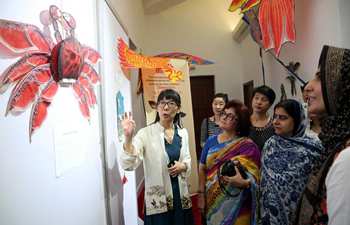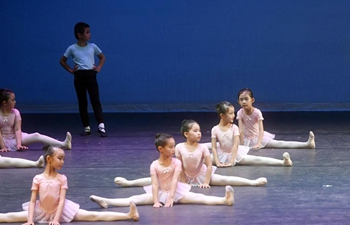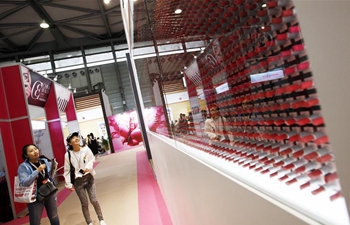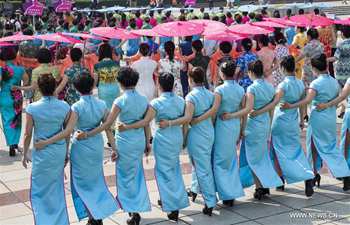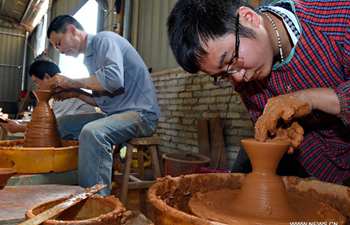PARIS, May 23 (Xinhua) -- The official campaign for the French legislative elections was launched on Monday, which will establish the balance of power for the next five years in the country.
Whatever the result of the decisive vote, the victory of the Republic on the Move (LREM) party led by President Emmanuel Macron in the presidential elections, the erosion and divisions of traditional parties, and new rules on the non-accumulation of terms will transform the face of the National Assembly.
Approximately 6,500 candidates will compete for 577 seats in the National Assembly in the two rounds of elections scheduled for June 11 and June 18.
The legislative elections will be held according to a first-past-the-post method: candidates with an absolute majority of votes will be elected. To qualify for the second round if no one wins in the first, the candidates must obtain more than 12.5 percent of the votes.
Therefore, there can be two, three, or even four candidates for the final showdown in each constituency.
The candidates have three weeks to convince some 47 million voters in France to vote for them.
Whatever the verdict at the voting booths, the renewal wanted by the new president appears to be on the horizon.
Often considered as the third round of voting of the presidential elections, the legislative elections are crucial for the new president, who must secure a majority in the Assembly if he wants to be able to follow through on his platform.
Without an absolute majority of 289 seats which seems still difficult to attain, Macron will need to form coalitions with legislators from the right or the left political parties.
Prime Minister Edouard Philippe, coming from the right, who resigned as the mayor of Le Havre to take the office, has leapt into the fray.
"My objective is to give a majority to the Head of State. I will campaign therefore for the candidates who share this objective," he was quoted by the Journal du Dimanche newspaper as saying on Sunday, suggesting that he would fight against those from his native Republican party that might be in opposition.
After blowing up the Socialist Party during the presidential campaign, Macron means to further break up the right-wing parties that are under strain from profound divisions.
Leader of the Republican party Francois Baroin called Saturday during a meeting in Paris to create the conditions for "frank power-sharing," as opposed to "the power-sharing of confusion" which was constituted, according to him, by the government formed a week ago.
Macron's LREM party published on Friday a list of 526 names, of which more than 30 percent are incumbents, all from the left, and half of which come from "civil society."
It left 51 constituencies uncontested, making way for leaders on the right, left and in the center who could be potential allies in the Assembly.
Le MoDem, the centrist party led by new Minister of Justice Francois Bayrou who had made an alliance with Macron before the first round of the presidential elections, has for itself obtained the nomination of the LREM in more than 30 constituencies and is expected to form a political group with Macron's party in the future Assembly.
The extreme right-wing party National Front, boosted from the 10.5 million votes received by Marine Le Pen during the second round of the presidential elections, is running candidates in every district.
The Unsubmissive France movement, with 60 percent of candidates coming from civil society, will play an important role as well in this vote.
The movement's leader, Jean-Luc Melenchon, who earned nearly 20 percent of the vote during the first round of the presidential elections, vowed "to replace" the Socialist Party and become the head of the future opposition party.
Recent polls gave the advantage to Macron's LREM party that benefits from a momentum effect after a victory in the presidential elections, with around 30 percent of intended voters for the first round.
The Republican Party and the National Front are both predicted to have around 20 percent of votes, ahead of Unsubmissive France at 15 percent and the Socialist Party at between 6 percent and 11 percent.




